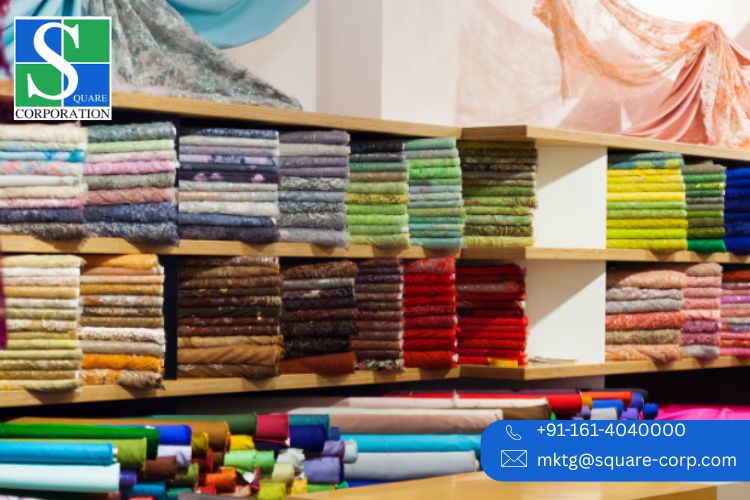Ever wondered where your favorite designer labels or export houses source their fabric magic from? Behind every stunning garment lies a network of wholesale fabric suppliers in india — the unsung heroes fueling the nation’s textile legacy. From Surat’s shimmering polyester to Tirupur’s soft cotton knits, India’s fabric market thrives on diversity, innovation, and trust.
The Fabric Backbone of India’s Textile Industry
India isn’t just a country that produces fabric; it lives and breathes textiles. As per data from the Ministry of Textiles (texmin.nic.in), the sector contributes over 12% to India’s export earnings and employs more than 45 million people. With rising global demand for sustainable and cost-effective materials, wholesale suppliers play a pivotal role in bridging manufacturers, designers, and retailers across continents.
Why India Stands Out Among Global Fabric Hubs
- Unmatched Variety: From luxurious silks to eco-conscious blends, Indian mills cater to every textile segment imaginable.
- Competitive Pricing: Thanks to domestic cotton, jute, and polyester production, suppliers can maintain affordable rates without compromising quality.
- Global-Grade Quality: Indian fabrics often meet ISO and OEKO-TEX standards, making them export-ready and compliant with international norms.
Top Regions Powering India’s Wholesale Fabric Trade
While every region contributes uniquely, a few hotspots dominate the wholesale supply chain.
- Surat, Gujarat: The “Textile City of India,” famous for synthetic and blended fabrics, particularly georgette, chiffon, and polyester varieties.
- Tirupur, Tamil Nadu: Known globally for cotton knits, Tirupur is a leader in export-quality jersey and interlock fabrics.
- Ludhiana, Punjab: A hub for woolen and fleece materials, fueling India’s winterwear and sportswear industries.
- Varanasi, Uttar Pradesh: The heritage capital of Banarasi silk, blending handwoven artistry with modern looms.
Spotlight on Sustainability: India’s Green Fabric Revolution
In the past decade, a silent yet strong movement has been redefining how India weaves its fabric narrative — sustainability. From recycled polyester blends to ethically sourced cotton, the push for eco-consciousness is undeniable. Many leading mills have partnered with Organic Cotton Farms to ensure their raw materials align with responsible production standards.
For instance, BCI (Better Cotton Initiative) standards are now adopted by several bci cotton yarn manufacturers, ensuring every thread carries transparency from farm to fabric. This growing trend not only strengthens India’s export competitiveness but also earns it a reputation as a leader in sustainable fashion manufacturing.
Key Factors to Consider When Choosing a Wholesale Supplier
Whether you’re a boutique owner, apparel exporter, or fashion startup, selecting the right supplier can make or break your production goals. Here’s a quick checklist:
- Certifications: Look for GOTS, OEKO-TEX, or BCI-certified suppliers for assured quality and sustainability.
- Fabric Range: A good supplier should offer diverse blends — cotton, linen, polyester, viscose, and recycled options.
- MOQ & Pricing: Ensure the supplier offers flexible minimum order quantities suited for your business scale.
- Communication: Transparent and responsive communication often reflects a supplier’s professionalism.
India’s Future in Global Fabric Trade
As global fashion giants shift towards ethical sourcing, India’s textile industry is aligning with these values. From tech-driven dyeing processes to biodegradable packaging, innovation is taking center stage. Many emerging linen manufacturers in india are blending tradition with technology — offering premium weaves while reducing environmental impact.
Moreover, digital platforms and e-commerce integrations have enabled even small-scale suppliers to reach international buyers directly, democratizing the trade landscape like never before.
Frequently Asked Questions
1. Which city in India is best known for fabric wholesale markets?
Surat in Gujarat leads the list, with over 65,000 textile units offering a vast range of synthetic and blended fabrics suitable for domestic and export markets.
2. Are Indian fabric suppliers reliable for international orders?
Yes. Many Indian suppliers maintain export licenses and international certifications, ensuring quality and timely delivery to global clients.
3. What are the current fabric trends in the Indian wholesale market?
Eco-friendly materials like organic cotton, bamboo blends, and recycled polyester are in high demand, alongside digital print and jacquard designs.
4. How can I find verified wholesale fabric suppliers in India?
Buyers can explore directories like IndiaMART, Fibre2Fashion, or government-backed portals from the Textile Ministry for verified supplier lists.
Also Read: The 5 Most Common Misconceptions Associated with Flax Yarn
Final Thoughts
India’s wholesale fabric industry is more than a trade — it’s a story of craftsmanship, sustainability, and innovation. From Surat’s looms to the organic fields of Tamil Nadu, the country continues to redefine how the world views textiles. For anyone seeking quality, variety, and trust — India’s fabric suppliers remain second to none.
Blog development Credits:
This blog was conceptualized and researched by Square Corporation, leveraging expert insights and advanced AI tools for writing and SEO optimization.



